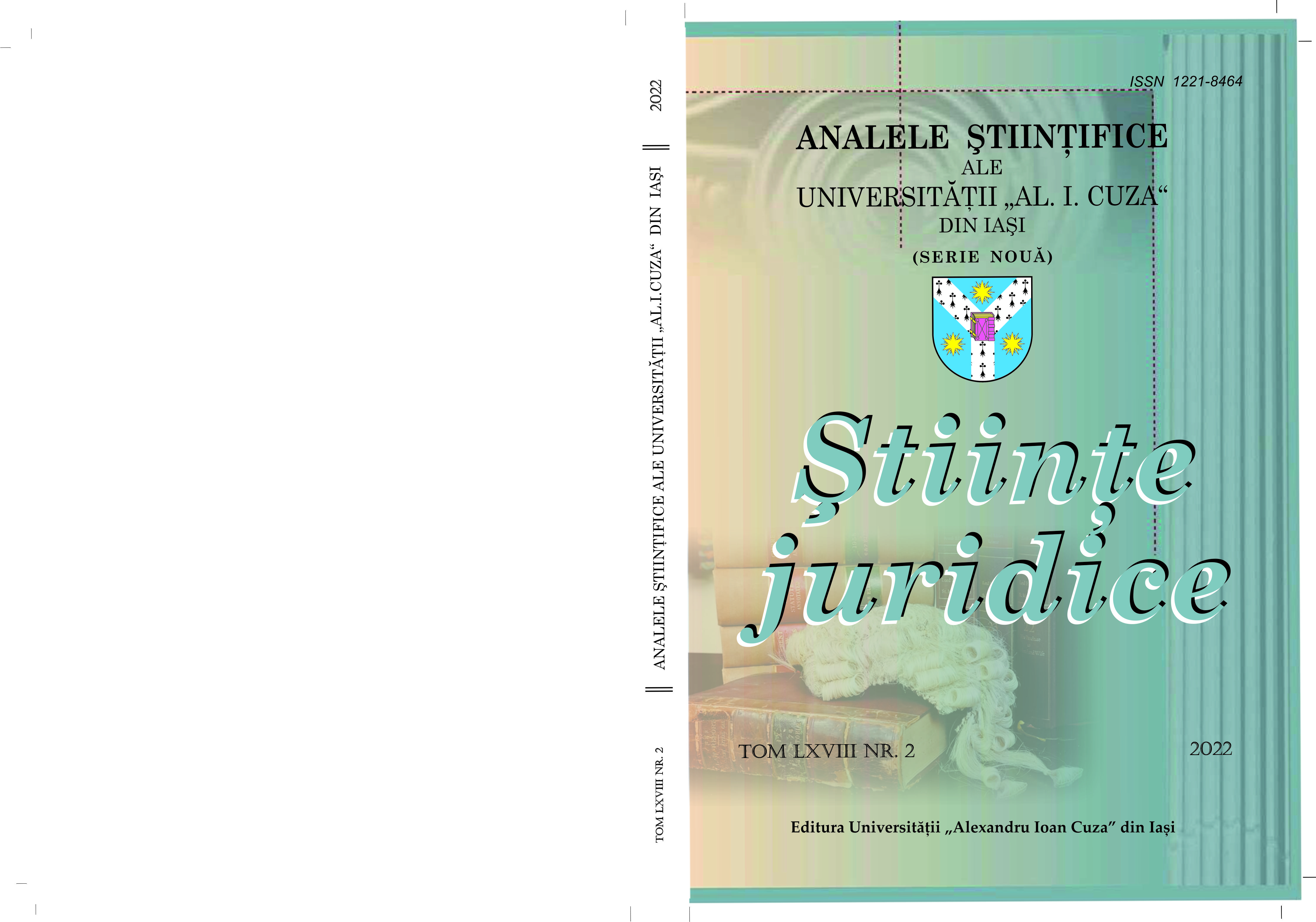Abordări conceptuale privind latura obiectivă a infracţiunii de insolvabilitate intenţionată
Conceptual approaches regarding the objective side of the intentional insolvency offence
Contributor(s): Natalia Janu (Editor)Subject(s): Criminal Law, Civil Law, Law on Economics, EU-Legislation, Court case
Published by: Editura Universităţii »Alexandru Ioan Cuza« din Iaşi
Keywords: trial; insolvency; entrepreneur; punishment; economic agent; property; regulation; social danger; purpose of acquisition; attributions; legal assessment; crime; prophylaxis;
Summary/Abstract: According to statistical data, the number of entities that declared insolvency in the Republic of Moldova has increased significantly. Thus, if, in 2016, 673 economic agents were declared insolvent, then only in the first quarter of 2022 their number stood at 2968 . In all countries of the world, no matter the level and degree of development of their economy, there is such a phenomenon as insolvency. It is obvious that a natural or legal person could become insolvent because of excess debt or lack of liquidity. In other cases, however, it is found that insolvency occurs because entrepreneurs are not able to manage their business, or they intentionally, through illicit actions, cause the company's poor economic condition. Therefore, the economic and financial difficulties of an enterprise may have the "domino" negative effect of attracting the financial collapse of business partners . We consider that the legislation of the Republic of Moldova provides sufficient instruments for the authorized administrator and the State Tax Service to have the possibility, together with the insolvency process, to identify offenses committed by the debtor even after the insolvency proceedings have been initiated. At the same time, we can assume that the detection of the insolvency offense in the Republic of Moldova is a rare phenomenon, because we are confronted with the problem of lack of professional training and specialization in the given field of the criminal investigation bodies, the competence in examining these crimes is assigned to the general organs of Ministry of Internal Affairs, according to art. 266 of the Criminal Procedure Code of the Republic of Moldova. However, the offense of insolvency (fictitious and intentional), as an economic crime, requires extensive knowledge of the financial and accounting field, civil law, insolvency, etc., for the instrumental provision of complex strategic investigations following the experience of the European Union. It is therefore important that criminal investigation structures investigating economic offenses in general and insolvency offenses in particular should have a high return through full use of institutional and professional capacities
Journal: Analele Științifice ale Universităţii Alexandru Ioan Cuza din Iași, seria Ştiinţe Juridice
- Issue Year: LXVIII/2022
- Issue No: 3
- Page Range: 263-275
- Page Count: 13
- Language: Romanian

